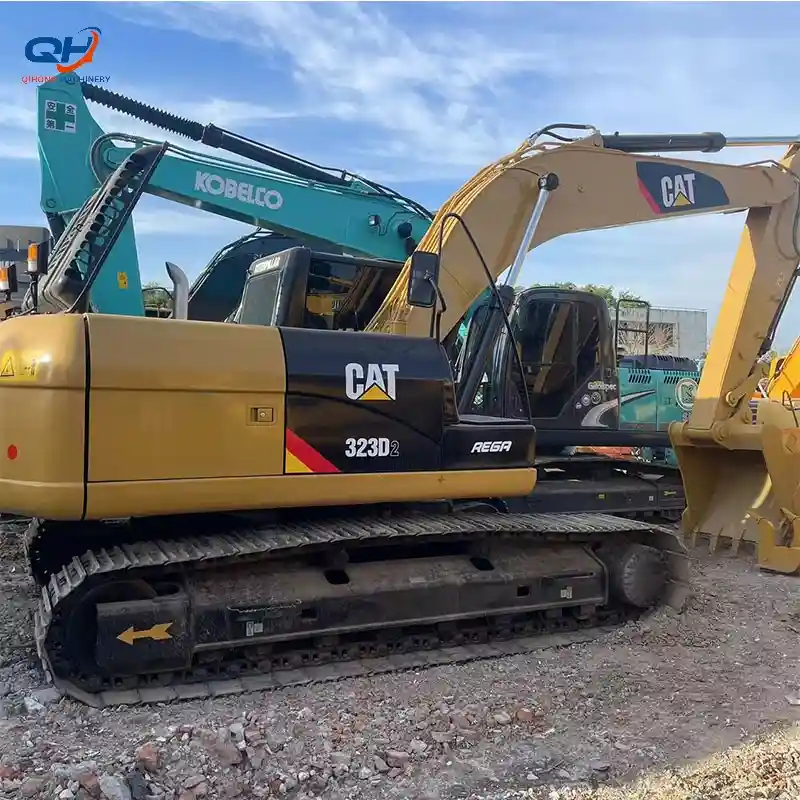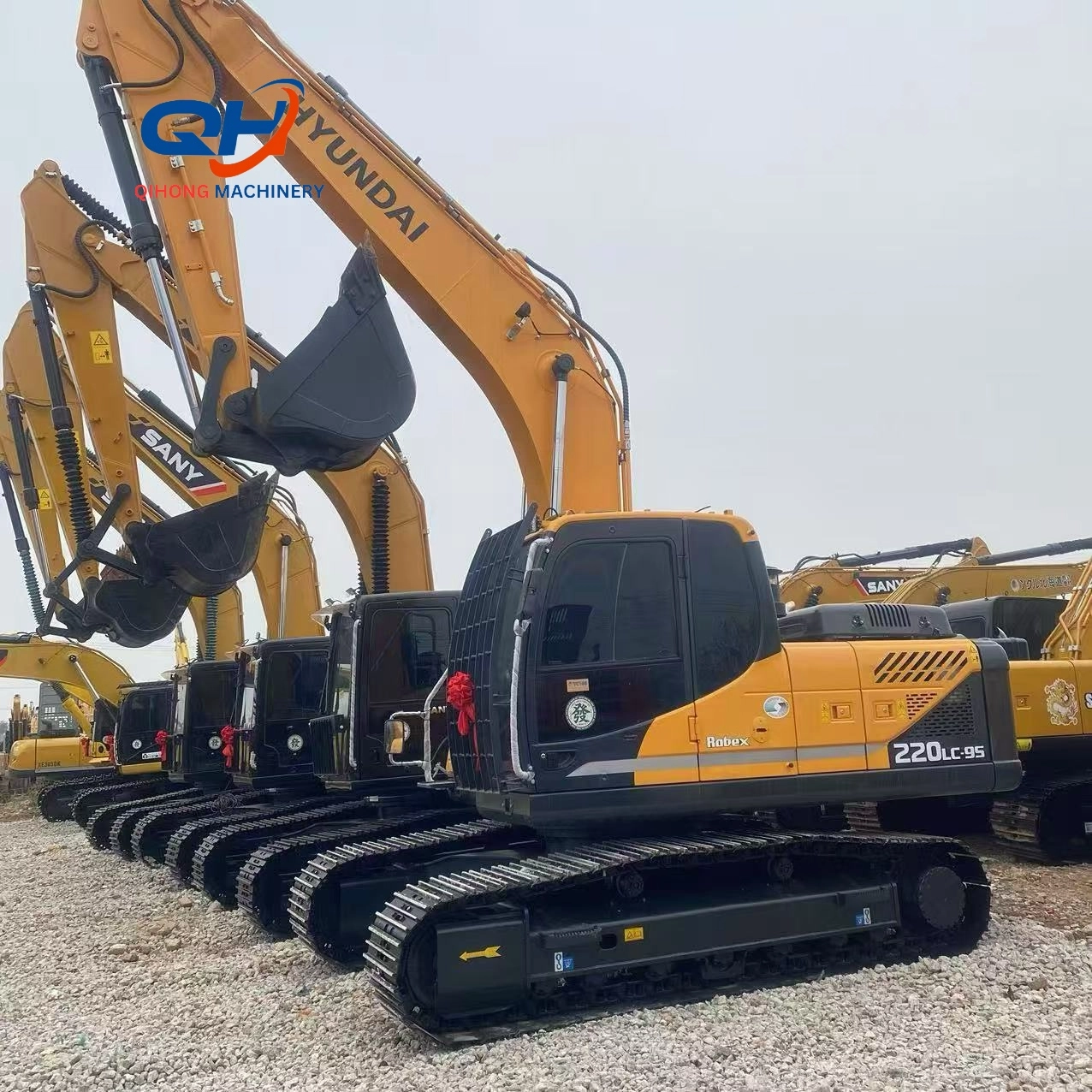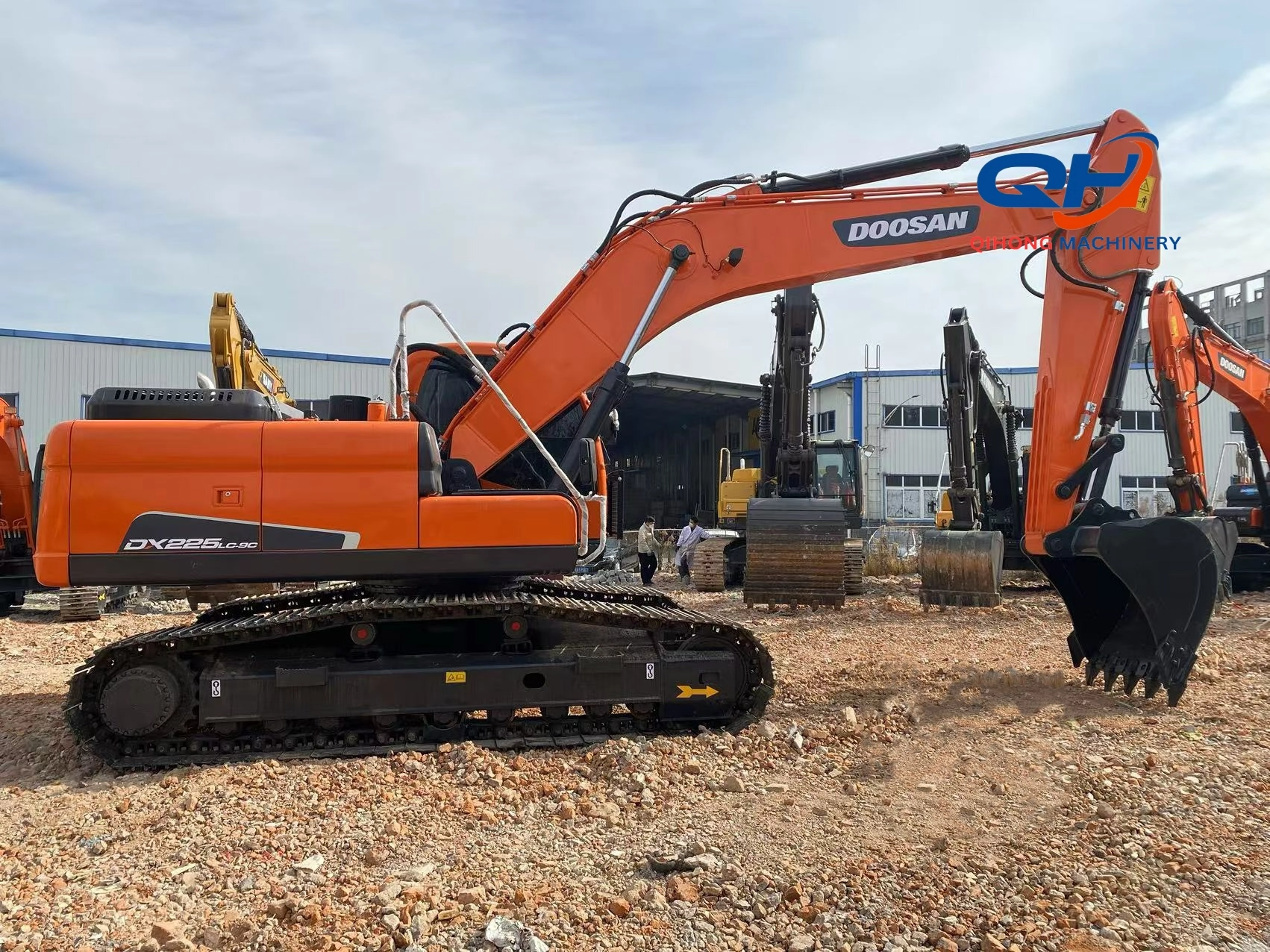How to Buy a Second-Hand Excavator: Your Ultimate Guide to Selecting & Inspecting Used Excavators
Release time: 2024-10-24
Purchasing a second-hand excavator can be a smart, cost-effective choice for your construction, landscaping, or demolition projects. However, buying used equipment comes with its own set of challenges. You’ll need to know how to select the right model, inspect it properly, and negotiate a fair price. This comprehensive guide will walk you through every step of the process to help you make an informed and successful purchase.

1. Define Your Excavator Needs Before Buying
Before you start looking at used excavators, it’s important to define your project’s specific needs. Excavators come in various sizes, types, and configurations, so understanding what you require will help narrow down your options.
- Machine Size and Weight: Make sure the excavator’s size fits your project’s scale. Larger machines are suited for heavy-duty tasks, while smaller excavators are ideal for tighter spaces.
- Required Attachments: Think about what attachments you might need, such as buckets, augers, or breakers. Some used machines may already come with the attachments you need, saving you extra costs.
- Job Requirements: Consider the types of terrain and tasks. Will the excavator be used for digging trenches, lifting heavy materials, or working in tight spaces?
By identifying these factors early on, you’ll be better prepared to choose the right machine that fits both your budget and job specifications.
2. Research Excavator Brands and Models
When it comes to buying used excavators, brand reputation and model reliability are key factors. Some brands are known for producing high-quality, long-lasting machines, while others may have frequent issues that affect performance and repair costs.
- Top Brands: Leading brands like Caterpillar, Komatsu, Volvo, and Kubota are known for their durability and performance. Research the specific models under these brands to find the one that best fits your needs.
- Model Age: Older models may be priced lower but could have more wear and tear. Newer models typically offer advanced technology, better fuel efficiency, and improved operator comfort.
- Resale Value: Popular brands often retain higher resale values, which could be beneficial if you plan to upgrade or resell the equipment in the future.
3. How to Check Excavator Age and Operating Hours
The age and operating hours of a second-hand excavator can tell you a lot about its overall condition. Typically, the more hours an excavator has run, the more wear and tear it has experienced.
- Operating Hours: A machine with under 5,000 hours is generally considered to be in good condition. Excavators with more than 10,000 hours may still be functional, but expect more frequent repairs.
- Maintenance History: Ask the seller for detailed service records. Regular maintenance helps extend the life of an excavator, so a well-maintained machine is likely to perform better.
- Look for Signs of Overuse: Excessive wear on tracks, hydraulic leaks, or engine trouble may indicate that the excavator has been overworked. Be cautious about machines that show these signs.
4. Inspecting a Used Excavator: What to Look For
When inspecting a second-hand excavator, it’s crucial to conduct a thorough evaluation. Here’s a checklist to help you:
- Engine Performance: Start the engine and listen for unusual noises like knocking or excessive vibration. Check for any leaks around the engine and hydraulics.
- Hydraulic System: Test the hydraulic functions by operating the arm, boom, and bucket. Any delay in movement or jerky motions could indicate hydraulic system issues.
- Undercarriage Condition: Inspect the tracks, rollers, and sprockets. These parts are often the first to wear out and can be expensive to replace.
- Cab and Controls: Examine the operator’s cabin for signs of wear. Check if all controls are functioning smoothly and if there’s any visible damage to the seat or safety features.
- Leaks and Cracks: Check for fluid leaks, cracks in the body, and any damage to structural components. Minor cosmetic damage may not be a big concern, but structural issues could be costly to repair.
5. Request Service Records and Ownership History
A well-documented service history is a sign that the excavator has been maintained properly. Ask the seller for records that show the machine’s routine maintenance (oil changes, hydraulic fluid replacements, etc.) and any repairs made.
- Ownership History: Understanding how many owners the machine has had can give you an idea of how much it was used. Multiple previous owners might indicate problems, while one owner who took good care of the machine is a better sign.
- Previous Work: If the excavator has been used on particularly demanding projects, such as in mining or heavy excavation, it could have experienced more wear and tear.
6. Negotiating the Price of a Second-Hand Excavator
Price negotiation is a vital part of buying a used excavator. Use your research on the machine’s condition, market value, and potential repair costs to bring the price down.
- Market Research: Check online listings, auction sites, and local dealers to get an idea of the fair market value for the model you’re interested in.
- Highlight Defects: If the excavator has visible defects or required repairs, use these as leverage to lower the price.
- Don’t Rush: Take your time to negotiate and make sure you’re getting a fair deal. Don’t be afraid to walk away if the price isn’t right.
7. Check for Warranties and Return Policies
While second-hand excavators generally don’t come with warranties like new machines, some dealers offer limited warranties or service guarantees. These warranties can provide extra peace of mind in case something goes wrong shortly after your purchase.
- Ask About Warranties: If the machine is still under the manufacturer’s warranty, find out if it’s transferable. Some dealers may offer a limited warranty on used equipment.
- Return Policies: Ensure that there’s a clear return policy in case the excavator doesn’t perform as expected after purchase.
8. Final Steps for Closing the Deal on a Used Excavator
Once you’ve found the right excavator, it’s time to close the deal. Make sure all terms are clearly outlined in a written contract, including:
- Price: Confirm the final price, including any taxes, delivery fees, or additional costs.
- Delivery Terms: Ensure you know when and how the machine will be delivered.
- Payment Methods: Discuss payment options (e.g., bank transfer, financing, etc.).
Buying a second-hand excavator can be a rewarding investment, provided you take the time to research, inspect, and negotiate the deal carefully. By defining your needs, choosing a reputable brand, checking the machine’s age and operating hours, and thoroughly inspecting its condition, you can make a well-informed decision. Don’t forget to ask about warranties and ensure a fair price before finalizing the purchase.
Ready to buy a used excavator? Contact us today for the best deals on high-quality second-hand excavators that are perfect for your next project.


